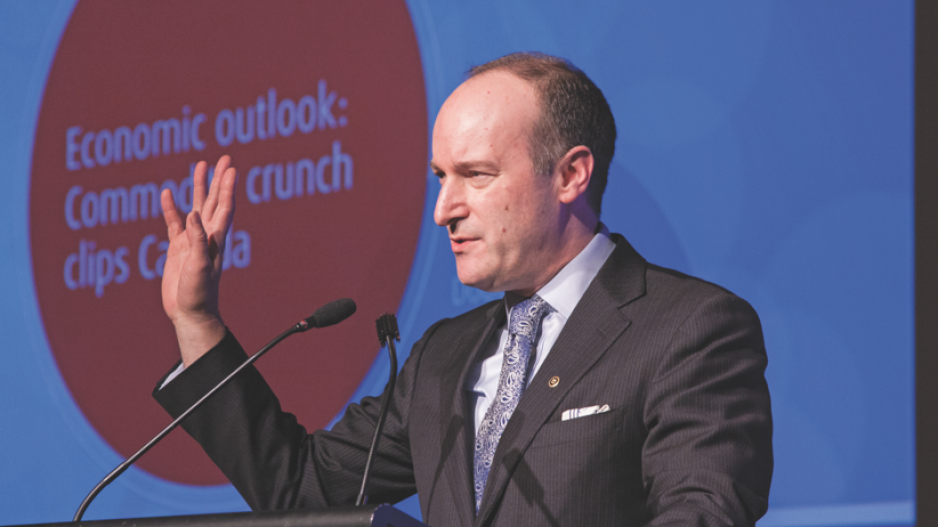Canada's 2016 economic outlook might be bleak, but West Coasters can take solace in the fact that, much as it did last year, B.C. is expected to lead the country in overall growth.
Douglas Porter, chief economist and managing director for BMO Financial Group, told attendees at the CFA Society Vancouver’s annual forecast dinner that, after a shaky start for global financial markets in 2016, B.C.’s diversification has remained a pocket of resilience and even expansion.
“B.C. is still the province we think is the fastest-growing, but admittedly that’s a pretty short bar to hurdle,” Porter said at the February 2 event at the Vancouver Convention Centre.
“Definitely in B.C. there are still issues. The mining sector is really struggling, but B.C. just happens to have enough sectors that benefit from lower oil prices and/or the lower Canadian dollar. The tourism sector, the tech sector, even the forest product sector is holding up relatively well because of the comeback in the U.S. housing industry. And, of course, real estate is absolutely on fire, and it’s debatable how sustainable that is, but for good or bad it’s helping keep the overall economy afloat for now.”
A recent BMO Capital Markets forecast predicted that for Canada, the economy will again be a tale of two countries in 2016: provinces hurt by cheap oil and provinces that will reap the benefits of a low Canadian dollar.
“The good news is that the 75% of Canada’s regional economy that doesn’t produce a lot of oil is poised to benefit,” the report said.
“British Columbia is projected to lead the pack again with 2.5% growth, while Ontario (2.2%) and Quebec (1.7%) grow at a solid clip. The rest of Atlantic Canada should improve modestly, though hardly better than the national average.”
Porter was one of three keynote speakers at the CFA event. Fellow keynote speaker Scott Lysakowski, RBC Global Asset Management vice-president, stressed the need to focus on individual companies rather than on larger macroeconomic issues that are highly susceptible to unpredictable events.
“We try to stick to our strengths, and that would be identifying high-quality companies that are run by strong management teams, that are well capitalized and have the opportunity to grow over the course of time.”
Lysakowski added that as the Canadian economy continues to adapt to cheaper oil, forecasting the long-term outlook is tough.
“It remains to be seen who will be the leaders within the country,” he said. “But I think it’s fair to assume the weakness in the resource sector will continue to be felt across the country for some time.”
A recent RBC report predicts that the drop in oil prices is unlikely to stop before next year. •




